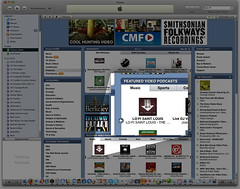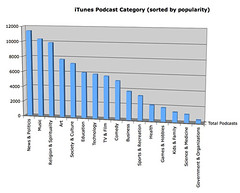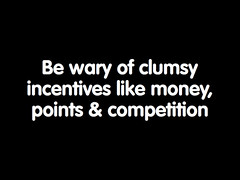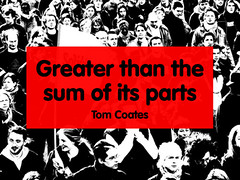The two funny guys behind 'Ask a Ninja' are asking serious money for advertisements placed in their podcast.
Douglas Saline and Kent Nichols are pricing their five-minute episodes at a CPM of $50. They told Advertising Age they get 1 million to 2 million views a month, which could mean a price of $50,000 to $100,000 per show. Saline and Nichols were in New York last week to pitch the show to marketers.
Mark McCrery, CEO of Podtrac, the Ninja ad-rep firm, says the pricing is justified by Ninja's audience: 57% between 19 and 34, and 83% male.
There have been 47 episodes of 'Ask a Ninja' since the series got started about a year ago. The venture began after the Saline and Nichols failed to sell a Ninja movie script and decided to try something on their own. It clicked. (Apology for the pun.)
Fans were not pleased with the Ninja decision to take advertising. 'Presenters' get a graphic at the start of the show and a 10- or 15-second scripted segment at the end, with the Ninja endorsing the product. Advertisers have included Sony Pictures and Warner Brothers.
There are other sources of revenue: 'Premium' members pay $12 to $15 a year and get access to shows a few days before they're posted on the Web. The Ninja show's theme song can be purchased as a ring tone. And the Ninja Mart Store sells $20 caps and $16 T-shirts.
'We're just a couple of funny guys trying to pay our bills,' according to the site. 'Bills that are in the tens of thousands of dollars. We don't want to rip anyone off, and we don't want to go broke doing this either.'
First note Ask A Ninja's business plan
1) advertising
2) paid annual subscriptions
3) merchandising
Second... not merchandising as Ask A Ninja is quoted as doing here has been around on vlogs for years... sell some hats, t-shirts and coffee mugs... if you've got a great brand like Ask A Ninja it's a piece of cake.
What's new here is a) advertisting which I'll get into in a second, and b) paid subscriptions.
Paid subscriptions first. It may not be the best model for them and it's still VERY experimental in the video podcasting space. In short I know NOONE doing it yet... and yet I think Ask A Ninja is right to dive into it and include it in their business plan. It's a good experiment.
Now then!
Let's get down to this crazy specs on advertising
1 - 2 million monthly views X $50 CPM = $50-100k/mo
For those of you who don't know CPM is an online advertising term "Cost Per Thousand Impressions" In this case those impressions are pre-roll ads I assume 15-30 seconds on the front of every Ask A Ninja episodes.
So can Ask A Nija really make $50-100k a month?
First... I don't question that Ask A Ninja is getting 1 to 2 million video views a month. It's a very realistic number given my experience with other vlogs.
The real question therefore is can they effectively transfer that ALL to ad views and is a $50 CPM ($50 per 1000 views) a realistic target.
Well... Ask A Nija actually quoted a $50 CPM... but this is quite high. I'm guessing they're NOT making this kind of money on EVERY ad view. I'm betting to some degree they're bragging about their upper limit... and rightfully so... nothing attracts advertisers and gets them to chuck up the big bucks like showing off your biggest brightest tail feathers.
That said... irregardless of wether Ask A ninja is making $50k or $100k a month or just $20k a month we're talking 2-3 guys working out of their basement! They're succeeding... and this is only the start... in the next couple years this industry is going to explode... and they're going to be more and more advertisers competing for premium video and audio podcasts... whomever can come out on the top of the barrel is going to make tremendous money. Right now I think Ask A Ninja is right where they need to be... as is Rocketboom and Ze Frank.
We're at the start of a new industry. A whole new sector for advertising.
What we need now is a Billboard 100 of sorts for various facets of video podcasting, audio podcasting, podsafe music... some industry rags... some groups competing to be the Nielson's ratings of this space to veryify and standardize how numbers like Ask A Nija's are tabulated... so advertisers don't have to gamble on wether they're closer to 1 million or 2 million.
And let's not forget advertising ISN't the end all be all... protect your intellectual property people.
Build brand and idenity... trademark it... merchandise it... later maybe you can licensce for who knows what.
Right now if you've got the talent the sky is the limit. The playingfield is level. You can do all the same thing as big media players.
licensce it
syndicate it
advertise on it
sell it
And most importantly of all make sure you realize that 95% of vlogs and audio podcasts will never monetize like this because Ask A Ninja is ENTERTAINMENT... and while that's funa and all the other 95% of vlogs and podcasts are merely COMMUNICATIONS.
Just like blogs before them 95% of all video blogs and audio podcasts will be closer to telephones than they are newspapers, TV shows and such... this is to say... they are interpersonal communications... that JUST so happen to be public... just because you're communicating in public... standing on a soap box or not... doesn't mean you're a movie star people... know the difference and by all means REVEL in your new found freedoms and encourage others to participate... but don't mistake these completely new media and your place in them for something they are not. This little evilution isn't about entertainment and news... it's about everday communications.
"The film of tomorrow will resemble the person who made it, and the number of spectators will be proportional to the number of friends the director has."
Truffaut saw almost 50 years ago the future of the moving image would be one day belong to everyday people... and the audience would find these everday moments interesting because they would be the creators friends, family and peers.
This is precisely what we're sing on services like youtube... once you get past the "viral videos" and the spectacle of it... you'll realize it's just people sharing little everday pieces of their life with friends, and peers around the world. Not entertainment... just communications. Youtube is more akin to what people one day envisioned as videoconferencing than it is TV or movies. It's like a big video conference party line... with an open ended timeline.
Most of it has very little to do with where Ask A NIja is going and that's great and fine and dandy.
What you thought everyone was going to be a TV star?
Ha!


 Podcast Ready
Podcast Ready From a presentation by Tom Coates,
From a presentation by Tom Coates, 














